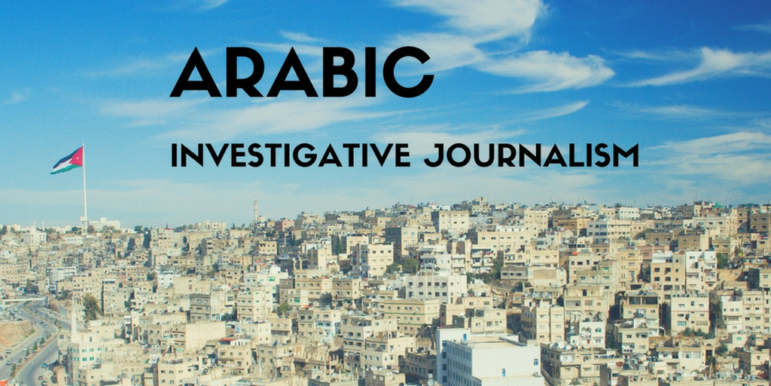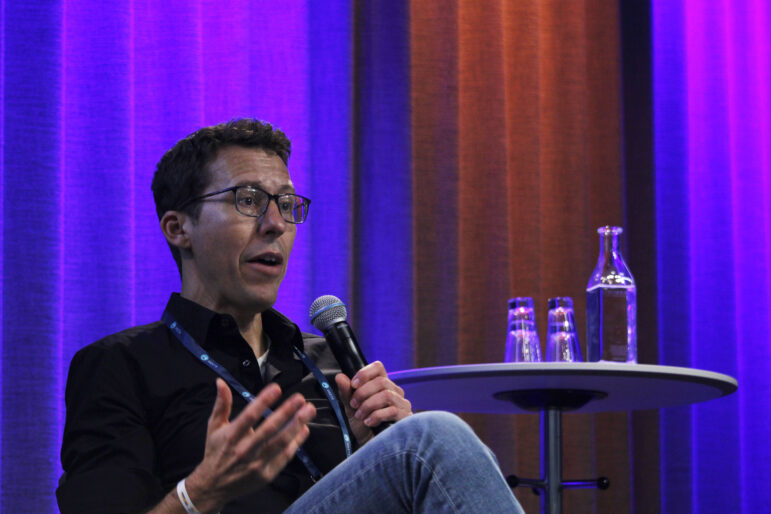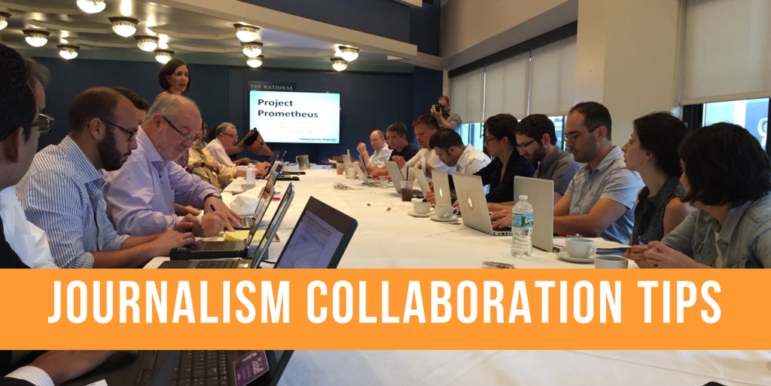

A Marketing Strategy for Arabic Investigative Stories
 The “after-sales” service is a basic function of any marketing team. It’s based mainly on providing the customer with technical support, such as maintenance, product guarantees and surveys on quality, as well as comparisons with similar products. In addition to customer satisfaction, problems arising from use are resolved. Marketing experts say the after-sales service is a crucial part customer purchase decisions – it’s not a “nice to have,” it must be part and parcel of any product on offer.
The “after-sales” service is a basic function of any marketing team. It’s based mainly on providing the customer with technical support, such as maintenance, product guarantees and surveys on quality, as well as comparisons with similar products. In addition to customer satisfaction, problems arising from use are resolved. Marketing experts say the after-sales service is a crucial part customer purchase decisions – it’s not a “nice to have,” it must be part and parcel of any product on offer.
There’s something crucial that investigative journalists in the Arab world can learn from this. Using the after-sales service, in the form of post-publication investigation surveys, journalists can monitor and activate the results of their investigations, enhancing accountability.
This article isn’t about investigative journalism, its importance, usefulness and limitations. Those subjects have been written about extensively. But what hasn’t been addressed is that, given the size of investigative journalism in the Arab world and the important and sensitive issues it has uncovered, the stories produced don’t often result in change and reform, or fight corruption.
The serious risks faced by investigative journalists and the crucial issues they expose by digging deeply mean that the investigative report shouldn’t treated the same way as a basic news story or an opinion piece. Nor should it be treated like a quick hit piece that makes the issue appear like a “storm in a teacup,” without leading to concrete results or systemic change.
Some believe the duty of the investigative journalist is to reveal corruption and clarify facts, and the duty of the responsible and concerned bodies is to follow up on those issues and investigate those involved in corruption and hold them accountable. This is sound practice when you have strong institutions which adhere to a set of laws and regulations.
However, when the entity responsible for holding others to account is in need of accountability itself, the duty of the journalist must go beyond publishing the investigation. Investigative journalists need to engage in ongoing, systematic processes after publication which force institutions to take action and hold the corrupt to account, and to seek remedy for those people whose rights have been violated.
Similar in purpose to the after-sales service in marketing, we can create a post-publication service in investigative journalism to maximize the impact of reports and bring about positive change and fight corruption by strengthening the principle of accountability.
Keep It Alive. And Interactive!
Dr Mark Lee Hunter, an adjunct professor and senior research fellow at the graduate business school INSEAD, in France, said in a telephone interview that investigative journalists can’t work alone. They need those directly and indirectly concerned, such as the victims, experts, civil society and citizens.
Hunter, a longtime investigative journalist and scholar, said journalists should follow up their investigations by maintaining direct contact both before and after publication with their sources, as well as other concerned parties. He said it’s also up to the journalist to keep the story alive and interactive by following it up with the competent authorities, victims and others affected.
At the Arab Reporters for Investigative Journalism (ARIJ) Forum last year, Sheila Coronel, the former head of the Philippines Centre for Investigative Journalism, added to that, saying Arab reporters need solidarity now more than ever to let corrupt politicians know they are not alone in the field.
“We pay the price for telling the truth,” she said. “But if we remain silent, societies and nations will pay the price of the silence of journalists who write the first version of history.”
A Tragic End
A review of some investigative reports produced by Arab journalists with the support and supervision of the ARIJ network shows the extent of the threat to Arab citizens regarding the violation of their rights. But the percentage of investigations undertaken, especially with stories close to the regimes, parties and ruling institutions, is negligible compared to the amount of corruption cases in the Arab world.
There are many examples worldwide where corruption is exposed. In places where the law and the systems of institutions function, there are few places for the corrupt to hide once those reports are published. But in the Arab world, the Arab Spring is just one of the biggest examples of how the corrupt are not held accountable.
The tragic end is that investigative reports in the Arab region instead translate into a message from the corrupt to those who try to reform and uncover what’s hidden – corruption remains when there is no law, no accountability and no transparency. And it is reinforced by the rising levels of corruption with the corrupt betting the wave that follows the publication of the investigative report is just a “storm” that will pass quickly. Soon society will be preoccupied with other issues. Without follow ups or a methodology for dealing with such important investigations, impunity for the corrupt will continue.
Limited Influence
Rana Sabbagh, the executive director of ARIJ, said that despite exposing major figures in the Panama Papers, little impact was felt in the Arab world. Sabbagh told CNN that most of the media outlets in the region – both public and private – hid the names of those exposed, while many in the public doubted the credibility of the journalists as well as the importance of their cooperation with the ARIJ.
It shows that it’s not just the governments which are trying to prevent the publication of investigative stories and having to deal with their results.
“The Arab media’s handling of the Panama Papers undermined the right of society to know,” Sabbagh said. “The majority of the Arab private media did not mention the names of the Arab personalities [involved], while they had to deal with the news of the resignation of the Prime Minister of Iceland and the storm that rocked the British Prime Minister, who finally decided to disclose his tax record.”
These experiences illustrate the weakness of the impact of Arab investigative reports in activating the principles of accountability at a time when those documents leaked overthrew political figures in other countries and forced some to confess to their involvement in corruption issues.
Hearings and Accountability Sessions
While there have been a number of Arab investigative reports which have succeeded and led to some changes, these are often met with legislative constraints which force journalists to move away from the “minefield” areas.
 Nadine Saify, the media and communication coordinator for the Coalition for Accountability and Integrity (AMAN), told me in an interview that their organization follows up on the investigative journalism stories they publish in Palestine by holding hearings with concerned parties in government, those directly involved and civil society groups, as well as accountability sessions live on radio in order illicit public opinion on the issues.
Nadine Saify, the media and communication coordinator for the Coalition for Accountability and Integrity (AMAN), told me in an interview that their organization follows up on the investigative journalism stories they publish in Palestine by holding hearings with concerned parties in government, those directly involved and civil society groups, as well as accountability sessions live on radio in order illicit public opinion on the issues.
“Not only this, but the AMAN foundation, which sponsors and supports dozens of investigative reports, also monitors and submits recommendations and the [outcomes] of the meetings and seminars are sent to the Council of Ministers [and] other relevant government parties,” Saify says. “Then, it disseminates these recommendations to the media and uses the results of the investigative reports, inserting them into the annual report prepared by AMAN every year. On top of that, it builds a full intervention plan for the following year, which is for pushing for change.”
Post-publication Strategy
“Everything evaporated as if nothing happened.”
The results of investigative reports become comments in the virtual world, with empty responses from official authorities who are faced by angry posts from angry citizens. Meanwhile, in the real world, the issues uncovered remain unchanged.
We do not want this to be the end of an investigation that required massive efforts, in which investigative journalists faced murder, stalking and arrest as they sought to uncover the truth.
The frustrating situation for investigative journalists in the Arab world requires change. These stories need to be treated with a new methodology and a system of action which includes following up on the outcomes of investigations and works toward achieving the principle of accountability. This should be based on a foundation of strong methodology which implements practical, integrated long-term steps post-publication.
The mechanisms of this strategy can be summarized in the following points:
- Hold awareness campaigns for the public to educate them on the dangers of corruption. This should be done prior to publication, and resumed and intensified after publication.
- Form a lobby that includes media and non-media organizations, selected community and human rights leaders and non-profit organizations which will hold to account those responsible and force decision makers to take real action against those involved in corruption cases.
- Refuse to surrender to official statements which placate the public, especially when they announce the formation of a committee to follow up on the investigation.
- Involve victims and stakeholders in maintaining the issue in various forms.
- Inspire concerned partner institutions, especially human rights organizations, by holding sessions of accountability and listening to the various parties related to the issue.
- Invite influential personalities to bolster influence and put pressure on the responsible authorities to force them to respond to the demands of change.
Our faith in our mission is not motivated by the desire to win a contest, to be honored or to win the greatest number of likes on social media or the admiration of viewers, readers and others. The driving force and the main motive for journalists is to expose the facts, see through the prosecution of those involved in various violations and crimes and combat corrupt behavior, actions and practices.
Do not expect the authorities to give you the right to pursue corrupt people. We have learned since childhood that “rights must be taken and not given.” Do not expect them to enact laws that will give you the right to access information. Fight with your professional weapons and support your journalism community with integrity, transparency and credibility.
A version of this article was originally published in Arabic on Al Jazeera and is reproduced here with the author’s permission.
 Mohsen Alafranji is a Palestinian journalist and academic. He has been a media trainer and lecturer at the Islamic University of Gaza (IUG) in Palestine since 1997, and is founder and editor in chief of the Palestinian Network for Humanitarian Media (ANSANA). He is currently a PhD candidate in the Contemporary Communication and Information program at University of Santiago de Compostela.
Mohsen Alafranji is a Palestinian journalist and academic. He has been a media trainer and lecturer at the Islamic University of Gaza (IUG) in Palestine since 1997, and is founder and editor in chief of the Palestinian Network for Humanitarian Media (ANSANA). He is currently a PhD candidate in the Contemporary Communication and Information program at University of Santiago de Compostela.











